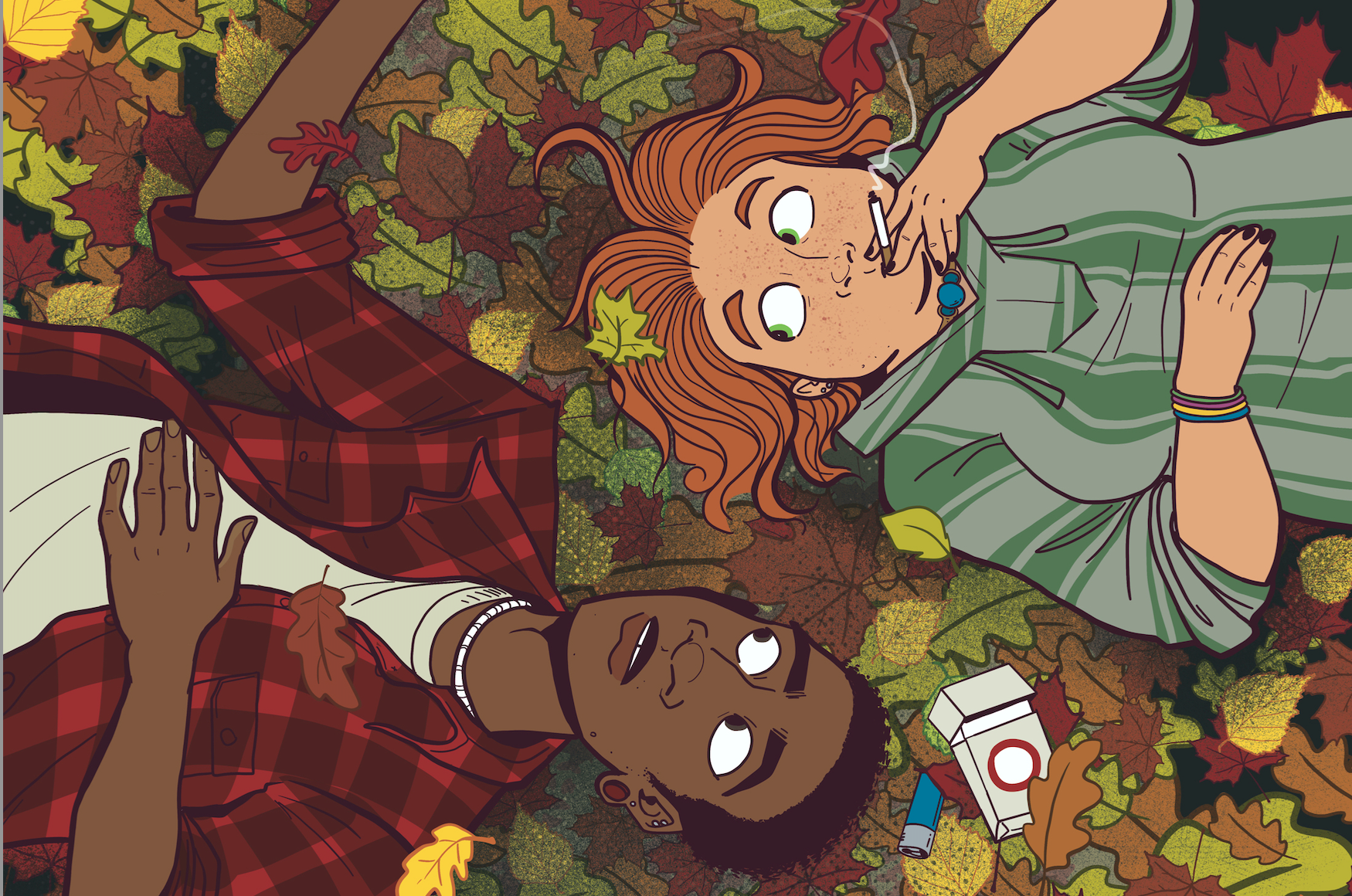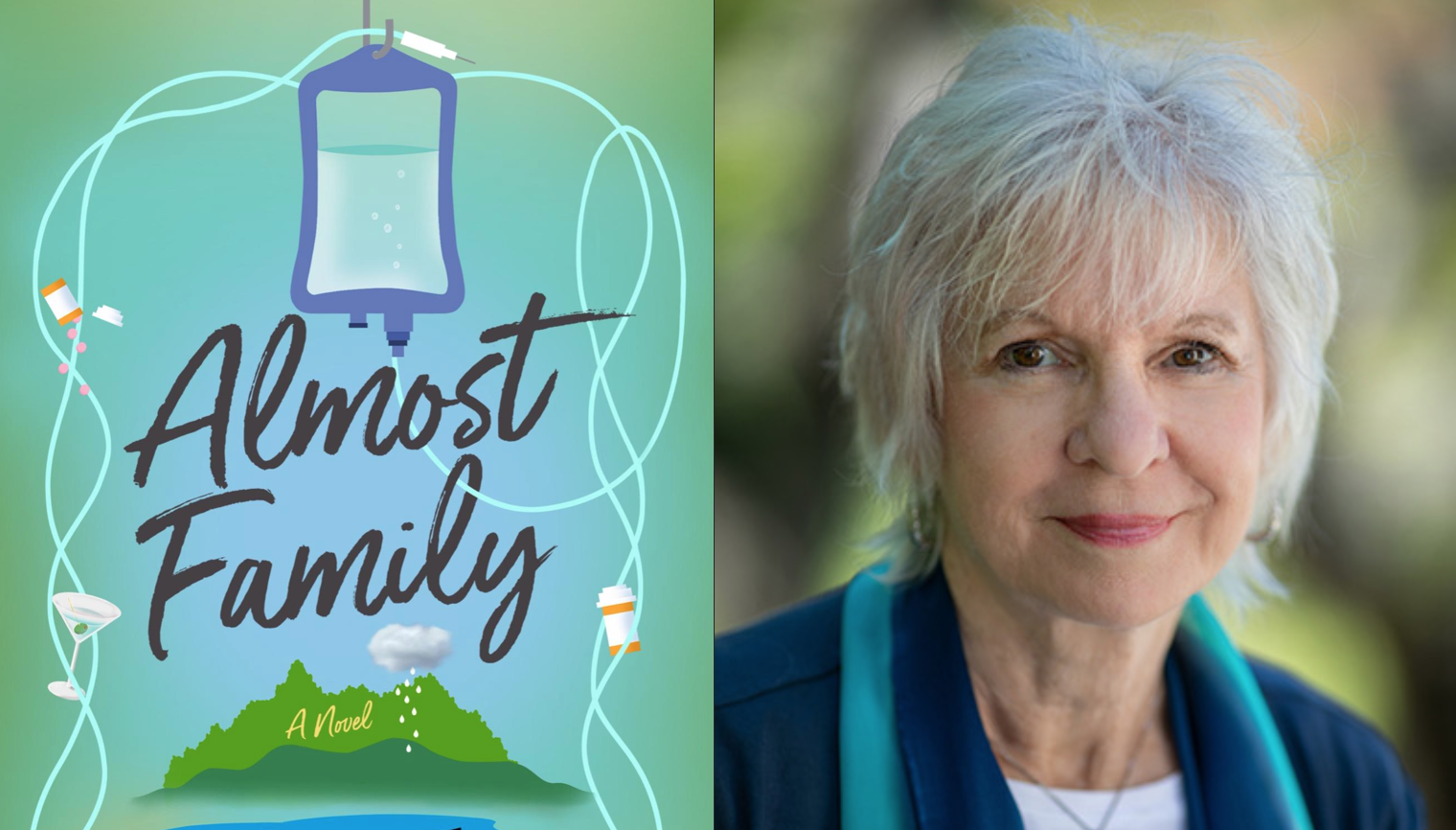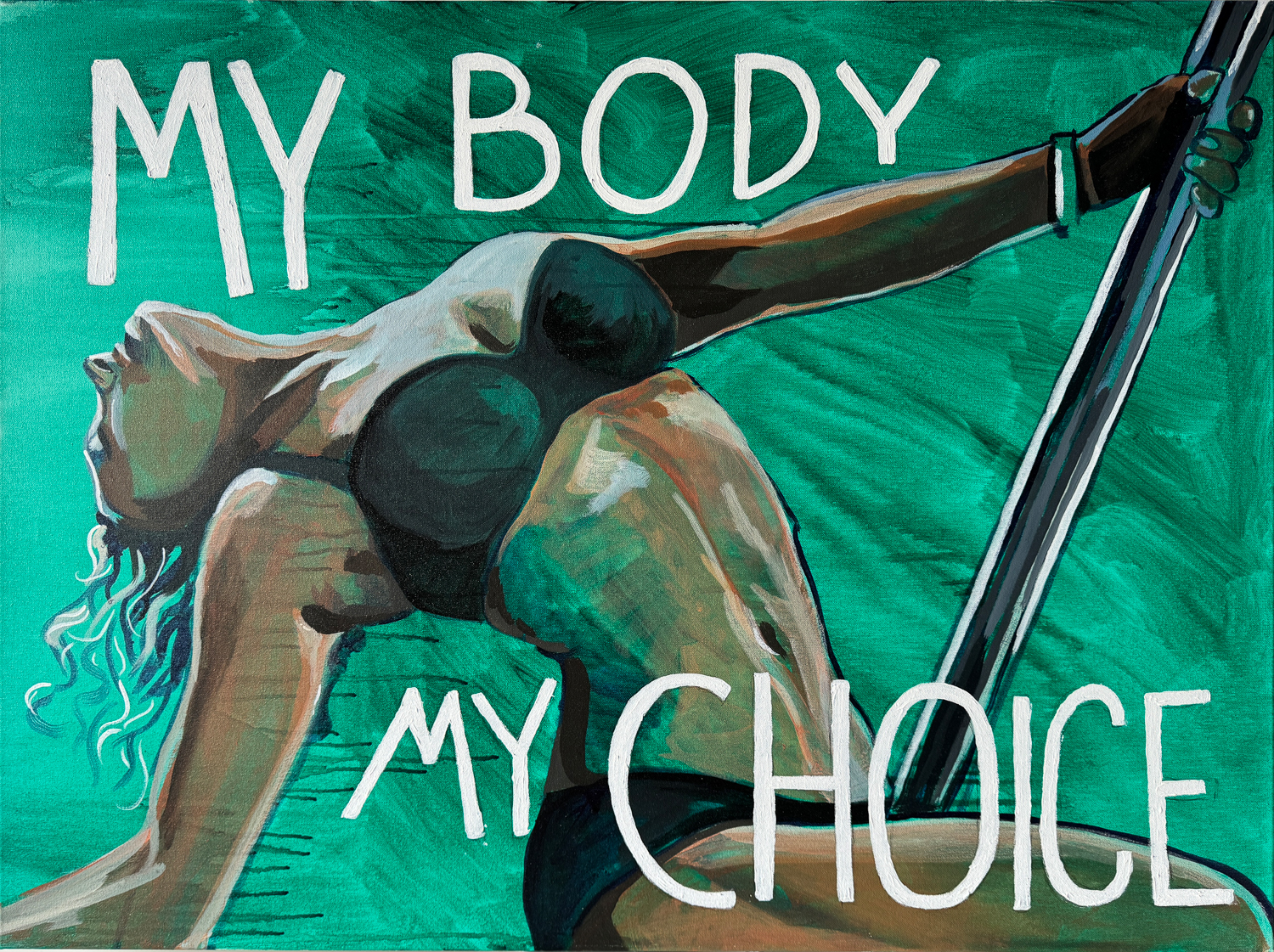
If there is one book you MUST add to your reading list this year, it is Toni Ann Johnson’s ‘Light Skin Gone To Waste’, set to be released on October 15, 2022, by University of Georgia Press. Feminist powerhouse author Roxane Gay praised this autobiographical fiction as “impeccably written, incisive, often infuriating, and unforgettable”, and she selected it as the winner of the 2021 Flannery O’Connor Award for short fiction.
Toni’s book features stories that delve into how racist ideas burrow into Black and White families and infect them for generations. The stories begin in 1962, with Philip and Velma Arrington’s move to the small town of Monroe. After initial racist resistance, they settle in. Phil joins the tennis club, begins his private practice, and soon has affairs with White women. Velma opens an antique shop and hires a White maid. They have a child, buy new homes, collect art, go skiing, and have overseas adventures. It seems they’ve made it in the White world. However, their daughter Maddie, one of the only Black kids in the town, faces the brunt of the racism her family’s money, education, and light skin can’t protect her from.
As the stories unfold, we learn how childhood trauma, race, class, and colorism have played a part in both Phil and Velma’s development. Simultaneously, we follow how these same effects develop Maddie’s multifaceted identity. The collection is as much about the complexities of race relations as it is about the cause-and-effect parenting has on one’s psychological development. If Maddie is injured by her experience with racism, her parents’ unwillingness to protect her is as much to blame as the racists themselves.
While this collection is not overtly feminist, the wife Velma resists the patriarchy. Velma comes into the workforce during the 50s and she’s on track to rise up in a bank. As a Black woman, she is supervising staff in the late 50s and early 60s. She gets married in ‘62 and that effectively halts her career. Her husband forces her to quit and take care of their kid and then proceeds to cheat on her. She starts her own business to have her own income and an identity separate from family life. Velma is caught the intersection of sexism and racism and she is navigating that via her budding awareness of feminism. She fights to be seen and respected.
‘Light Skin Gone to Waste’, examines race, class, community, family, and the meaning of home, and we had the chance to share an exclusive excerpt from the forthcoming book, which you can read below.
Maddie called and told me Phil ran into Gertie up in Goshen at one of those old-folks homes he works with. As bent over and decrepit as he looks, he oughta be living in one of those places himself, honestly. But that’s her father and I held my tongue. Gertie Dowd. Sweet lady. Often wondered what happened to her. Maybe I’ll get up there and visit her myself one of these days. We were still living on Stage Road when she started working for us. Long time ago.
The day we met it was spring, my forsythia bush was blooming in the backyard like a big burst of yellow confetti. The reason I remember it so well is ’cause of the ruckus up the road that morning. I’d walked Brutus up the road going toward the golf course like I had many times. We’re talking back in the seventies before Monroe was so built up. Lots of pine trees, maple, birch, and coming from the city, I thought it was beautiful.
Well, ol’ Brutus took a dump in what I thought were nothing but some wild plants at the edge of the woods. Looked like weeds to me. So I wasn’t expecting it when Sally Gore, in a housecoat with curlers in her frosted blond hair, popped outta the trees, like a horror house monster, screaming at me.
“I catch you lettin’ your dog crap in my garden again, I’m gonna slap you!”
I stepped forward and said, “Bitch: you and what brigade? You slap me, Sally, and I promise, that’ll be the last thing you do this side of the grave.”
Brutus growled, and big as he was, that scared her a bit. She backstepped and pulled her cat-eye glasses off her face. My God, that woman could’ve made a clock strike thirteen. And what I said must’ve shocked the sugar cubes out of her, ’cause her eyes went wide and her mouth stretched open big enough to fit a fist in it.
Some of those Monroe White folks, honestly . . . I don’t know what they thought half the time. Maybe that I was gonna hang my head, or say “yass’m,” or whatever nonsense they saw on television, but she had another thing coming . . . Even though my Great Dane shouldn’t’ve been doing his business on her property. I sure as hell wasn’t gonna kowtow to silly Sally Gore.
A few years before that her daughter tried to commit suicide in my house. Mm-hmm. She babysat for Maddie, against Sally’s wishes, I soon found out. Caitlyn was thirteen or fourteen at the time and nuts about some boy her parents didn’t approve of. Phil used to spend Friday nights at his office in the city—this was back when I was too naive to know what, exactly, he was spending those nights doing—and I’d go up to auction in Middletown.
Sometimes when I’d get back, Caitlyn would stick around and chat with me, tell me her lil junior high problems. She needed somebody to listen to her, and I was lonely, so I didn’t mind the company.
Well, one night I came home and the damn kid was passed out in my bathroom. She’d taken a bottle of sleeping pills. Had to rush her to the hospital myself, because I didn’t trust the volunteer ambulance this little town had. But I couldn’t leave Maddie alone; she was four years old. So I pulled her out of bed and carried this unconscious teenager to the car and got her down to Tuxedo Hospital.
They pumped her stomach, and the head of the ER, Dr. Wagner, came out and told me she was okay. But when Sally Gore and her skinny little runt of a husband showed up and started fussing at me—what’d I do to their daughter?—the doctor let ’em have it. Wagner was a mountain of a man, with a voice to match, and it echoed through the halls of the hospital. Caitlyn apparently shared some details about what was going on at home, and he told them they were terrible parents. Said the kid felt unloved and unwanted and shame on them. The guy was known to speak his mind.
I saw Sally eyeing me across the room through her cat-eye glasses. Now, I wasn’t one to contribute to anybody’s humiliation, so I focused on Maddie. She was whining to go home. Turned out, Sally had forbidden her kid to work for us and she was mortified to have this play out in front of me, of all people. Even White trash likes to have somebody they can feel better than.
Caitlyn finished high school and left town, but Sally never got over the incident. She didn’t like me before, and she really hated me after that. She had every right to be annoyed about the dog, but you have to understand this was a road that bordered the woods, and her house was down a hill from there. Couldn’t even see it from the street, there were so many trees. I had no idea it was her property. And I never did walk the dog there again.
But threaten to slap me? Please.
I didn’t back down from that kinda shit when I was a kid in Harlem, and I certainly wasn’t gonna take it from some backwoods hillbilly up here.
Sally’s tongue tied itself up in a knot after I let her know who she was dealing with. She was so hot in the face even her ears turned red. But with a horse-sized dog beside me, what was she gonna do? She stomped back down her hill and disappeared through the trees.
Soon as I got home, I mean, it couldn’t have been more than five minutes later, my neighbor Iris was at my back door telling me Sally called and told her what I said.
Iris had this tickled smirk on her face and she said, “I told her, ‘I know Velma, and I don’t think she’d say a thing like that.’”
I looked at her and said, “Oh yes, I did say it, Iris, and I’d say it again.”
She laughed and laughed—got a real kick out of it. Probably because my demeanor was typically feminine as a flower. It was. I couldn’t live up here and act like some ghetto wild woman, my husband being a professional and all. Anything we did—including Phil’s running around—everybody knew about it. This was a small town back then and we didn’t exactly blend in.
Now, Iris was fun. She wasn’t prejudiced. Nothing like that stupid Sally. First of all, the woman was movie-star gorgeous, I’m telling you, blond, blue-eyed, shapely figure. Had a handsome husband who loved and provided for her, and kids who didn’t give her a whole lot of trouble. Guess she had no reason not to be nice. A lot of women in town had a problem with her, because she really was a beauty, but that didn’t bother me, because so was I.
Listen, I have never been jealous of another woman’s beauty. I might admire someone else’s eyes or her figure, or whatever, but not so much that I didn’t like my own. Even with all Phil’s carrying on . . . Well, okay, I was jealous about that, but not because I thought they were prettier. Please. I used to model for Ebony and win beauty contests at the Harlem Y. And the woman I called my grandmother, bless her crazy heart, was constantly telling me I was the prettiest girl in the world, and I believed her. Shoot, I still look good all these years later in my seventies. And Phil’s rickety old ass is with another one of his bowwows, this one bowwowier than the one before.
My run in with that bumpkin in her bathrobe was the same morning Gertie came. She took the Shortline bus from Middletown to Monroe and got off on the corner where Stage Road and 17m meet and where the waterfall’s at the edge of the lake. That waterfall is pretty as a Monet masterpiece. The second I saw it and heard the sound of that water falling into itself, I knew I wanted to live on that street.
Gertie walked up the hill from the waterfall, just a little ways, to get to our house. And she did that twice a week for several years. If she was surprised to find herself working for our kind of people, she covered it quick. First time she showed up, Iris was having coffee with me in the kitchen right after I got through dealing with Sally. When I answered the door and Gertie saw Iris at the table behind me, she did look right past me and she waved at her. But I introduced myself, and if she flinched, I didn’t notice.
Gertie was Irish American and a little older than me, early forties. She was matronly, even then. Slightly pudgy, ruddy skin, deepset, dark eyes. Her hair was mousy brown and had no sheen. She wasn’t ugly. You just got the sense she didn’t feel a need to fuss about her looks. No makeup. She wore a light green uniform, faded, and a white cardigan sometimes buttoned unevenly so one side hung below the other. I knew she was fragile, emotionally, because we’d spoken on the phone. I’d put an ad in the paper looking for a housekeeper.
After the suicidal-babysitter episode, we tried a couple of live-in Haitian nannies for Maddie that Phil found through an agency in Manhattan. They also cooked and did light cleaning when I started selling antiques on the weekends. None worked out. Phil said it was because they were dark, West Indian maids who reminded me of my birth mother, and this supposedly made me aggressive toward them. But that wasn’t it.
One lady tried to berate me for spanking Maddie when she misbehaved. The next one acted like it was beneath her to work for another Black woman. She had the nerve to suck her teeth when I asked her to clean the oven. And the last one refused to dust my nineteenth-century bureau, because, according to her, it was haunted. So that was that. We’d either take Maddie with us, or if we were going out in Manhattan, leave her with my folks. And I pushed a broom myself for a while. When I decided to keep my shop open full-time, I looked for someone local. Didn’t care if they were Black, White, or neon blue, as long as they were willing to work by my rules.
Gertie called and said, “Hello, Mrs. Arrington, my name is Gertrude Dowd. I’m callin’ about the ad in the Times Herald-Record for a housekeeper.”
“Thank you for calling,” I said. “Can you tell me what kind of experience you have?”
“Yes, ma’am, my mother’s been cleaning some of the big homes in Goshen for a long time now. When I was fifteen she taught me. I been a cleaning lady for twenty-five years. I have references.”
“That’s fantastic,” I said. “But may I ask why you need this job? Sounds like you’ve been busy.”
“Yes, ma’am. I, uh, haven’t worked in a while, because for the last few months I’ve been a patient at Middletown State Hospital, and someone took over the jobs I had.”
Mind you, Middletown State Hospital was basically an insane asylum, but I was married to Phil and he was a psychologist, so I knew there were different degrees of crazy.
“Middletown State Hospital?” I said. “May I ask, what for?”
Heard her take a breath and let it out. “I had a nervous breakdown, ma’am.” Her voice was cracking. “But I’m doing better now. I’m an outpatient and my social worker says I can work twice a week, just like your ad says. Says here you need someone Tues-dees and Fri-dees and I’m available. Y’can speak with her if y’like. I’ll do a good job if you’ll give me a chance.”
I knew I was gonna hire her then, before I even saw her. Because it took a lotta guts to ask for a job and have to admit all that.
You can pre-order ‘Light Skin Gone to Waste’, out October 22, on Amazon, Indiebound and Barnes & Noble. Learn more about Toni Ann Johnson via her website.

















